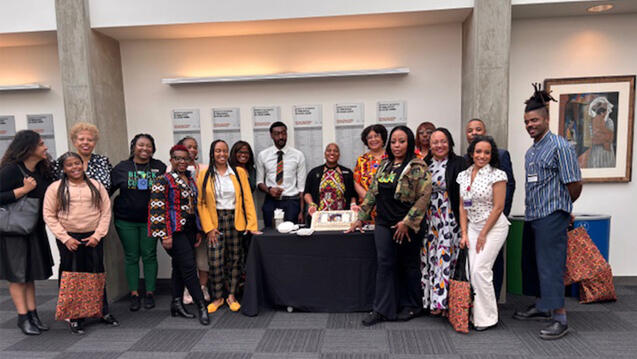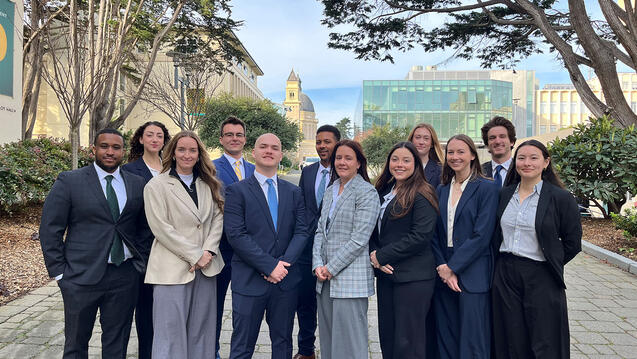CLGJ Report Documents Violence Faced by Haitian Journalists
“Freedom of the Press in Haiti: The Chilling Effect on Journalists Critical of the Government” is co-authored by CLGJ Assistant Director for Haiti Programs Nicole Phillips and several USF law students.
“Freedom of opinion and expression constitute the foundation of every free and democratic society,” Phillips said in a press release on the report. “If the Haitian government is serious about strengthening its democracy, it will take affirmative steps to address its ongoing violations of freedom of expression and protect the media.”
Students participating in the Haiti and the Rule of Law course conducted interviews with nine international and local journalists working in or near Port-au-Prince. To obtain a spectrum of viewpoints, the students—Kathryn Finch 2L, Britney Mark 2L, Katherine O’Laughlin 3L, Lynn Nguyen 3L, Samantha Silvia 3L, and Laura Tran 3L—interviewed conservative, centrist, and left-wing journalists.
“I did not realize the violations were so egregious and what a risk it is to be a journalist in Haiti. It was eye-opening,” said Nguyen, who also helped author the report with O’Laughlin and Tran. “People risk their careers and reputations, safety for themselves and their families, and sometimes their lives to report what is happening in Haiti in the hopes that the government will be held accountable for its actions.”
The report found that President Martelly and his administration are using intimidation, threats, destruction of media equipment, and retaliation against progressive journalists, especially those critical of the government. For example, a leftist journalist has received multiple threatening phone calls, three journalists were arrested in September for failing to give up their video and photography equipment to police, and two journalists have been murdered in 2012.
Journalists also struggle to obtain access to public information and are consistently denied interviews with governmental officials.
The report recommends several steps for Haitian governmental and public agencies to undertake in an effort to protect freedom of the press, and suggests that the international community provide the Haitian government and civil society with support to meet these goals.
“Working as a journalist in Haiti is particularly risky for those who are openly critical of the government’s lack of transparency and accountability. They work in the face of threats to their life and safety,” Phillips and co-authors wrote. “These hardships impact their lives, their work, and their ability to move freely.”
The Haitian Ministry of Communication issued a press release that said that the Haitian government has not threatened or intimidated journalists and denounced the CLGJ report.


